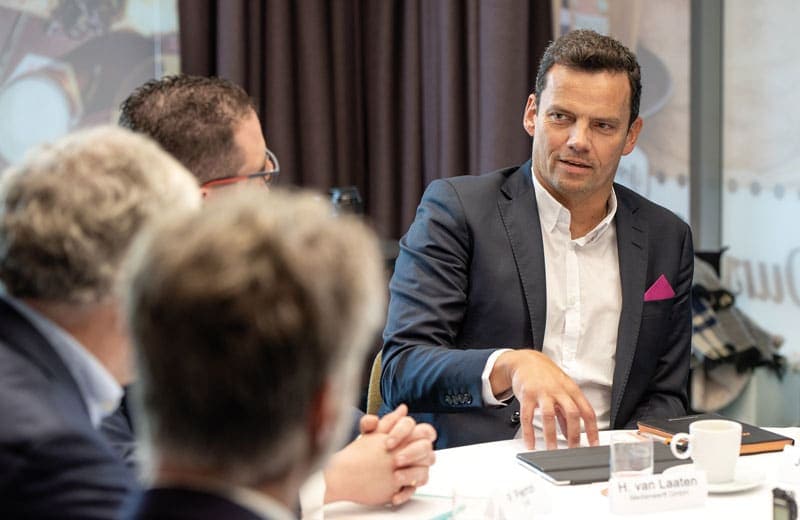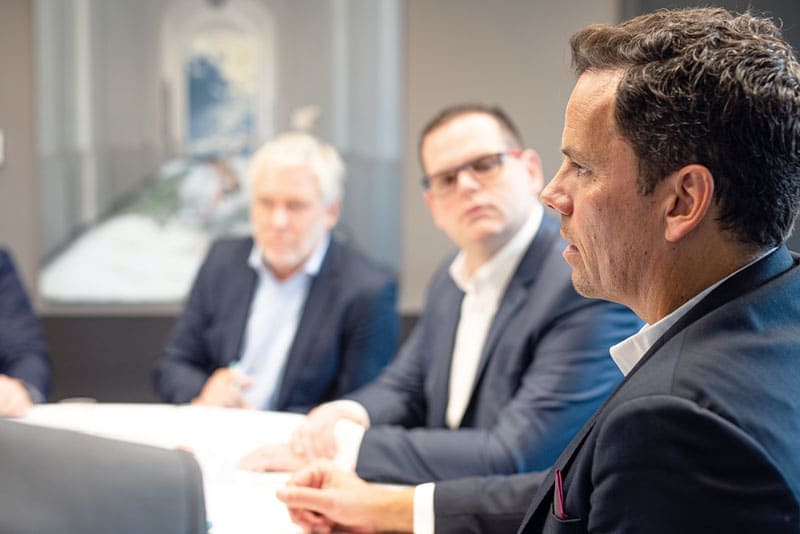Emarsys or Marketing Cloud


Customer Engagement in the SAP World
In online marketing, the goals are ambitious: marketers are targeting the entire customer lifecycle and want to reach prospects, new or existing customers with personalized, precisely matching offers via their preferred communication channels. All interactions and activities, whether discount campaigns via social media, e-mail campaigns, or personalized website content, must also be continuously evaluated and optimized. This is made possible by customer engagement platforms that bundle huge amounts of data from all relevant sources and evaluate it in real time.
Emarsys, one of the leading providers of such omnichannel customer engagement platforms, was acquired by SAP in 2020. Users thus have another alternative to choose from in addition to SAP Marketing Cloud. Hendrik van Laaten, Managing Director of the Medienwerft agency, part of the FIS Group, explains in an interview the differences and strengths of SAP Emarsys compared to the Marketing Cloud and provides decision-making aids.
From the perspective of an SAP partner and passionate e-commerce consultant: How do you assess SAP's acquisition of Emarsys?
Hendrik van Laaten, Medienwerft: We were really pleased about this, as we see great potential in Emarsys and had already been working with the provider at the time. For us, this brings us full circle: the world of e-commerce with its omnichannel platforms oriented to B2C processes and SAP solutions for complex digital B2B sales models are growing together. For SAP and thus also for its partners, this opens up access to completely new user groups. With Emarsys, SAP is taking another big step into the marketing world after the purchase of Hybris.

Hendrik van Laaten, Managing Director Medienwerft, Agentur für digitale Medien und Kommunikation GmbH, Hamburg (part of the FIS Group)
But SAP already has its own platform, the Marketing Cloud. How do the two systems differ?
van Laaten: That's right, SAP Marketing was and is also developed with the aim of combining and evaluating data. The platform can be adapted very precisely to the respective corporate structures and is particularly suitable for sales models that require very granular scoring models; all in all, therefore, a strong basis for automating sales in the high-price capital goods sector. When we look at where the system is in use, it is primarily large corporations that can invest money and time in the solution.
So attention should also be paid to the orders of magnitude?
van Laaten: For the majority of users, the marketing platform is rather oversized and should not be underestimated in terms of the effort required to set it up and adapt it. Secondly, these companies, especially in the B2C sector, need a marketing automation solution specifically in the area of e-commerce because they either already have online stores installed or are planning to use them. Both points speak for the use of SAP Emarsys. One feature of this platform is the large number of preset functions or cases.
This significantly reduces the setup time compared to setting up the Marketing Cloud, so the system is up and running faster. This shorter time-to-value means that the potential inherent in marketing automation can be leveraged more quickly. On the other hand, Emarsys is consistently developed from the marketer's point of view and is consistently oriented towards the requirements of modern e-commerce.
What does that mean exactly, how is this marketing approach realized?
van Laaten: Of course, Emarsys is also based on linking a wide variety of data across all channels. However, the starting point for the concept and structure of the platform is the question: What do marketers need to manage their daily tasks efficiently? Marketers are measured by the success of their campaigns and actions. The challenge is to always keep an eye on the KPIs for all sales or advertising campaigns and to react quickly and appropriately to changes.
And how is that supposed to work?
van Laaten: The Emarsys dashboards combine overview and action tools. Not only are all important key figures summarized with corresponding comparative values from the previous year's periods, but the marketing goals are also assigned strategies for achieving the goals, such as "increase shopping cart value" or "reduce customer churn". Individual tactics are then stored for each strategy, concrete actions that can be implemented directly. Dozens of such tactics or actions are already available in the system.
To what extent can such a variety of options also be confusing?
van Laaten: It also requires analysis and experience, which are often not available at the beginning. If a company opens a new online store but the expected sales fail to materialize, advice is often needed. The first thing to do is to investigate: What is the customer journey like, where are the difficulties, for example, at which point is the bounce rate above average? Our task as consultants is then to present the tools of the trade and make recommendations on where to start first in order to generate more sales quickly.
What future developments do you expect?
van Laaten: I assume that e-commerce will be an issue for the majority of companies in the future. This means that it will no longer be just about sales automation, but sales, marketing and store activities will have to be synchronized. Emarsys is needed for this. From my point of view, it would be logical to expand Emarsys as a leading platform in the long term and to integrate important areas of the SAP Marketing Cloud.
And will it happen?
van Laaten: It can already be seen that work is being done very consistently to close any remaining gaps in the platform. For example, sub-brand and multi-client capability and the topic of account-based marketing are being expanded. The connection to SAP Commerce and other SAP CX products is being optimized. These developments are being implemented very quickly, so that rapid enhancements and improvements can certainly be expected here.
E-3: Thank you for the interview.

About Hendrik van Laaten
From platform strategy to the perfect customer journey to effective online marketing: As Managing Director Digital Strategy & Marketing and co-founder of the Hamburg-based digital agency Medienwerft - part of the FIS Group since 2016 - Hendrik van Laaten is a proven expert for the products of the SAP CX Suite. Strategic thinking and a strong understanding of brands are the hallmarks of the business graduate, who advises well-known clients from B2B and B2C on all aspects of digital transformation.






